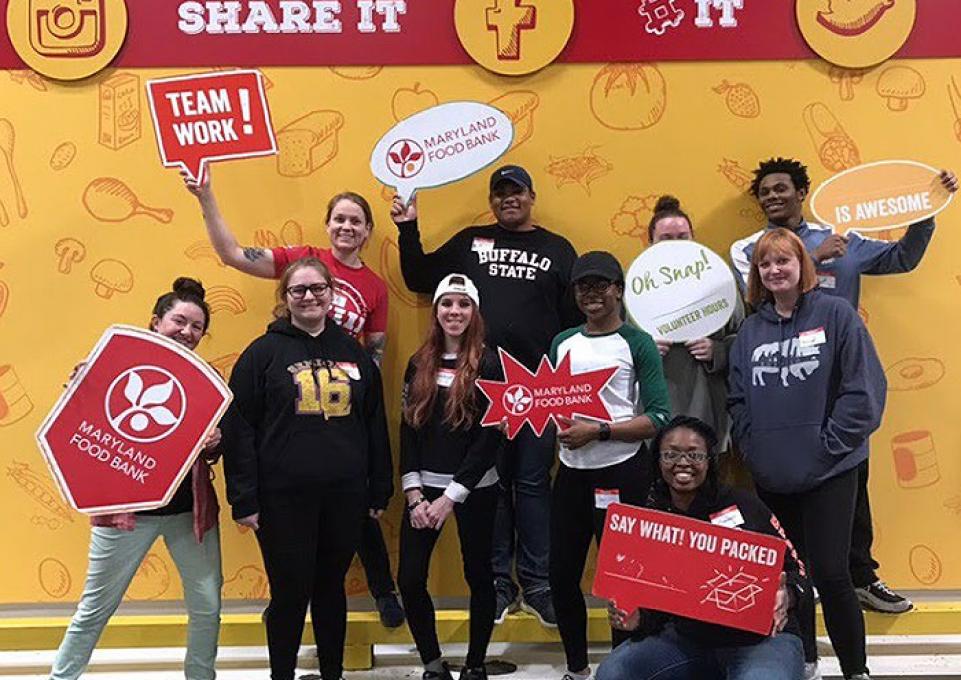
Buffalo State senior Ashley Zapp went on her first Alternative Summer Break in 2018 in Baltimore, Maryland. After a week of working for an organization that houses women who had experienced human trafficking, she felt inspired to help organize a similar trip this summer.
Zapp, an anthropology major, and junior Rachel Shafer, a nutrition and dietetics major, worked with Aurora Schunk, Buffalo State assistant director of civic and community engagement, to plan the 2019 summer break. It was sponsored by the Civic and Community Engagement Office and focused on food insecurity.
Seven students joined them for a six-day trip in late May that included working in two soup kitchens and two urban farms and sorting donations for the Maryland Food Bank. They stayed in a house owned by Catholic Charities, cooked meals together, and fit in a little sightseeing.
“I think my favorite part of this trip was watching everyone becoming closer while still volunteering and learning some new things,” Zapp said. “We had such a good group of students, and I’m so proud of all of them.”
Buffalo State has participated in Alternative Summer Break since 2013. This is an expansion of the Alternative Spring Break program that began in 2010 and now includes fall and winter alternative breaks. Students have had hands-on experience working directly with community partners in 37 cities.
“The cool thing about this most recent break is that that students learned about the various initiatives community organizations have to increase access to nutritious food, and it eliminated stigmas and misconceptions related to hunger,” said Schunk, who noted the students on the trip represented a range of majors from communication to psychology.
“There are so many different angles that communities and organizations use to combat entrenched problems, such as hunger, and it’s good for students to see that from the inside.”
Zapp had never been to a food bank or urban garden before this trip.
“Just walking around Baltimore, you can see they have more people and more of a need for food security,” she said. “I live in Newfane, so I don’t see the effects that city living can have on people from all walks of life. I think these trips are a good way to get different perspectives on how life can be for others.”
Next summer, Schunk said students will return to Baltimore and work on projects that aid victims of human trafficking.
